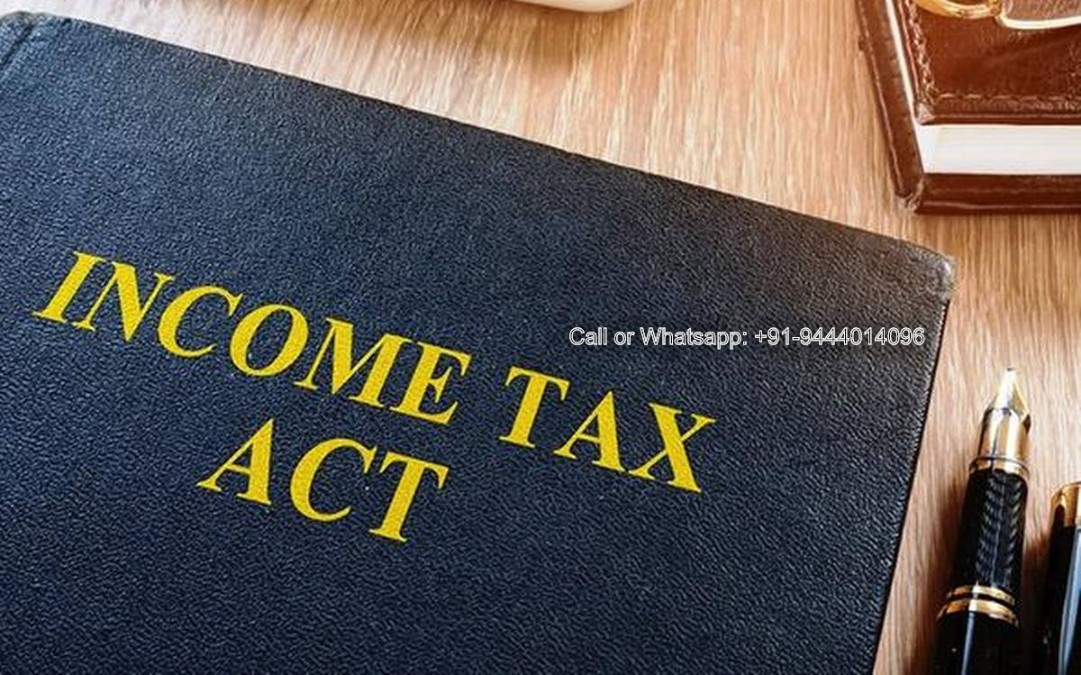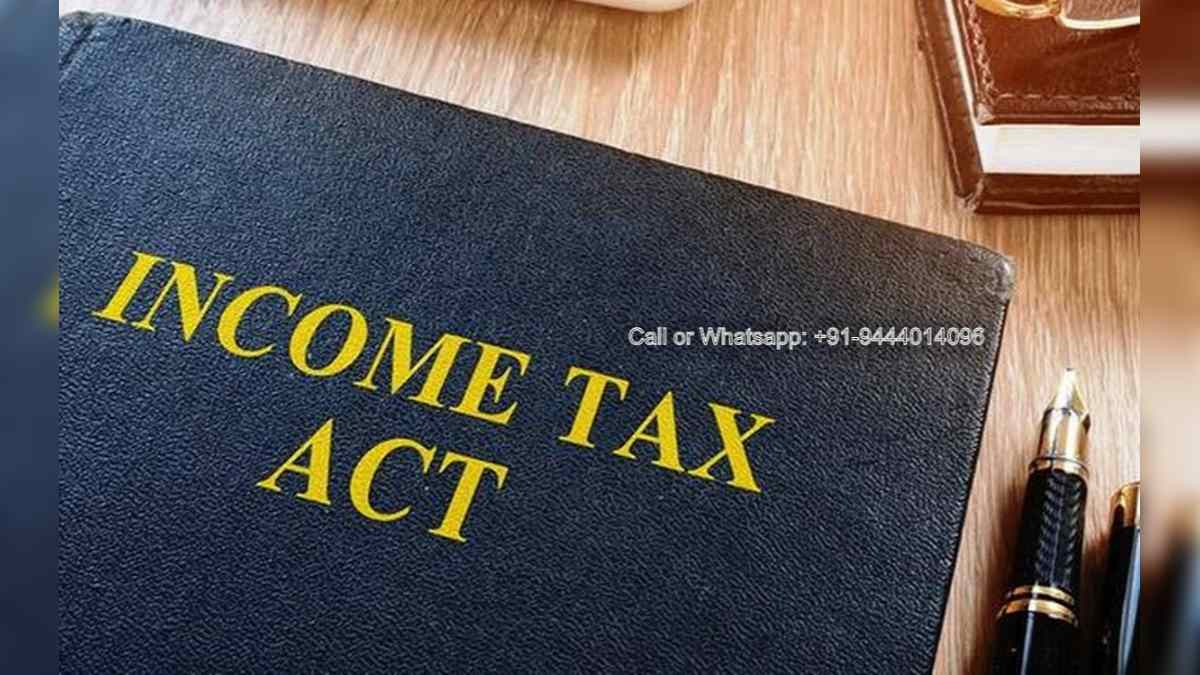Navigating disputes before the Income Tax Appellate Tribunal (ITAT) requires sharp legal expertise and a deep understanding of tax laws. Whether you are an individual taxpayer or a corporate entity challenging an unfair tax assessment, having the right legal team is crucial. At Apex Law Office LLP, our experienced tax lawyers provide strategic representation to ensure the best possible outcome for your case. With a proven track record in handling ITAT appeals, we meticulously analyze every aspect of your tax dispute to build a strong legal argument. Our commitment to precision, reliability, and client success makes us the trusted choice for tax litigation. Let our expert advocates safeguard your financial interests with unmatched legal acumen.
Top Law Firm in India for Income Tax Appellate Tribunal – ITAT
What is Income Tax Appellate Tribunal – ITAT? In fact, Who can approach Income Tax Appellate Tribunal? How to appeal in ITAT?. By all means, Who is the Best Lawyer for ITAT?. Appellate Lawyers Office is one of the Top Law Firm in India for the Income Tax Appellate Tribunal – ITAT?. Firstly, Find the Best Rated Income Tax Legal Consultants.

Income Tax Appellate Tribunal – appeals under the Direct Tax Acts
The Income Tax Appellate Tribunal is a quasi-judicial agency that was established in January 1941. Of course, It specializes in dealing with appeals under the Direct Tax Acts. Orders passed by the ITAT are final, an appeal lies to the High Court only if substantial questions of law arise for determination.
Establishment of ITAT
ITAT was started in 1941 with six members of three benches. one each in Delhi, Kolkata (Calcutta), and Mumbai (Bombay). The number of the bench has been increasing. And currently, Income Tax Appellate Tribunal – ITAT has 63 benches in 27 different stations covering almost all cities that have a place sitting in High Court.
Justice to litigants in ITAT
Income Tax Appellate Tribunal – ITAT draws inspiration from the motto ‘Sulabh Nishpaksh Satvar Nyay’, which means an impartial justice, easy and fast. ITAT stands out because of its uniqueness instill justice to litigants, by an inexpensive, easily accessible free technical forum, considered for expert knowledge on the subject of Direct Taxes, other than rendering justice quickly.
Mother Tribunal
More often than not, Income Tax Appellate Tribunal – ITAT is referred to as the ‘Mother Tribunal’ as its the oldest in the country. More importantly, it is the success of ITAT, which has encouraged the Government of India to form a sort of Appeal Court for indirect taxes ie Customs, Excise Tax, Appeal Tribunal (CESTAT), the Central Administrative Tribunal (CAT), Railway Claims Tribunal, Foreign Exchange appellate tribunal
Commissioner of Income Tax (Appeals)
The Commissioner of IT (Appeals) is the first appellate authority and the Court of Appeal Income Tax is the second appellate authority. Appeal to the Income Tax Appellate Tribunal – ITAT may be filed by any of the injured parties, either by the taxpayer or by the determining official.
The ITAT is constituted by the government and central functions, dependent on the Ministry of Justice. Income Tax Appellate Tribunal – ITAT has two classes of members – Judicial and Accountant.
In this section, you can learn about various provisions regarding appeals to the ITAT.
Appealable orders on appeal by the taxpayer
1. Appeal Against Rectification Order by CIT(A) – Section 154
Taxpayers can appeal to the Income Tax Appellate Tribunal (ITAT) against an order of rectification issued by the Commissioner of Income Tax (Appeals) [CIT(A)] under Section 154. This section allows correction of mistakes apparent from the record, but if a taxpayer believes the rectification order is incorrect or unjust, they can challenge it before ITAT.
2. Appeal Against Orders of CIT(A) – Sections 250, 270A, 271, 271A, 271J, 272A
Orders passed by the CIT(A) under Sections 250, 270A, 271, 271A, 271J, or 272A can be appealed before ITAT. These sections relate to the assessment process, penalty impositions, and procedural matters, and if a taxpayer finds the order unfavorable, they can seek relief through an appeal.
3. Appeal Against Order on Charitable Registration – Section 12AA
When the Chief Commissioner of Income Tax (CCIT) or CIT passes an order under Section 12AA regarding the registration of a charitable or religious institution, the taxpayer can appeal to ITAT. This is crucial for organizations seeking tax exemptions and recognition under income tax laws.
4. Appeal Against Rejection of Charitable Fund Approval – Section 80G(5)(vi)
If the CCIT or CIT rejects approval under Section 80G(5)(vi), which affects a charitable fund’s eligibility for donations benefiting from tax deductions, an appeal can be filed with ITAT. This ensures that legitimate charitable organizations can contest wrongful denial of approval.
5. Appeal Against Revision of Assessment Order – Section 263
Under Section 263, the CCIT or CIT has the authority to revise an assessment order deemed prejudicial to revenue interests. If a taxpayer disagrees with such a revision order, they can approach ITAT for redressal.
6. Appeal Against Rectification of Revision Order – Section 154 & 263
Taxpayers can appeal to ITAT against a rectification order passed by the CCIT or CIT under Section 154, which pertains to corrections in an order made under Section 263. If the rectification negatively impacts the taxpayer, they have the right to challenge it.
7. Appeal Against Penalty Orders – Sections 270A, 271, 272A
If the CCIT or CIT issues a penalty order under Sections 270A, 271, or 272A, the taxpayer can file an appeal with ITAT. These sections deal with penalties for underreporting income, concealment, and other tax-related violations.
8. Appeal Against Orders by Principal Tax Authorities – Section 272A
Orders under Section 272A issued by the Principal Chief Commissioner, Chief Commissioner, Principal Director-General, or Director-General can be appealed before ITAT. These orders often involve penalties for non-compliance with tax regulations.
9. Appeal Against Exclusion from Tonnage Tax Regime – Section 115VZC(1)
If an order under Section 115VZC(1) excludes a taxpayer from the tonnage tax regime, they can challenge it before ITAT. This section applies specifically to shipping companies seeking benefits under the tonnage tax system.
10. Appeal Against Assessing Officer’s Order – Sections 143(3), 147, 153A, 153C
Orders passed by the Assessing Officer (AO) under Sections 143(3), 147, 153A, or 153C, either under directions of the Dispute Resolution Panel (DRP) or through rectifications under Section 154, can be appealed before ITAT if they adversely affect the taxpayer.
11. Appeal Against Orders Involving General Anti-Avoidance Rules – Section 144BA(12)
If an assessment order is passed under Sections 143(3), 147, 153A, or 153C with the approval of the CCIT or CIT under Section 144BA(12) (which relates to General Anti-Avoidance Rules – GAAR), taxpayers can contest it before ITAT. Appeals under this category typically involve complex tax avoidance cases.
12. Appeal Against Rejection of Educational or Hospital Exemption – Section 10(23C)(vi), (via)
When the CIT (Exemptions) rejects an application under Section 10(23C)(vi) or 10(23C)(via), affecting tax exemptions for educational institutions or hospitals, the aggrieved entity can file an appeal before ITAT. This provision ensures that legitimate institutions can seek judicial review if denied tax-exempt status.
13. Appeal Against Rejection of Charitable or Religious Fund Exemption – Section 10(23C)(iv)
If the CIT (Exemptions) denies approval under Section 10(23C)(iv), which relates to tax exemptions for charitable or religious funds, the taxpayer can challenge the decision before ITAT. This section safeguards the rights of organizations contributing to social welfare.
14. Appeal Against Exemption Denial for Public Religious or Charitable Trusts – Section 10(23C)(v)
Under Section 10(23C)(v), if the CIT (Exemptions) refuses tax exemption for a trust dedicated entirely to religious or charitable purposes, the trust can file an appeal before ITAT. This ensures that genuine public trusts receive the tax benefits they are entitled to under the law.

Appealable orders in cases of appeal by the Commissioner
If the Chief Commissioner of Income Tax (CCIT) or Commissioner of Income Tax (CIT) disagrees with an order passed by the Commissioner of Income Tax (Appeals) [CIT(A)] under Section 154 or 250, they can take action. They may direct the Assessing Officer (AO) to file an appeal before the Income Tax Appellate Tribunal (ITAT) against the decision of CIT(A). This process allows the tax department to challenge orders they find unfavorable or erroneous. Such an appeal is commonly referred to as a departmental appeal. It signifies the Income Tax Department’s legal recourse against the decisions made at the appellate level. By approaching ITAT, the department seeks a judicial review of CIT(A)’s order to ensure tax laws are correctly interpreted and applied.
The departmental appeal is allowed only in cases where the tax effect involved in the appeal exceeds Rs. 10,00,000. In other words, the Commissioner of the income tax can direct the determining officer to file an appeal to the ITAT against the order of the Commissioner of Income Tax (Appeals) only in cases where the tax effect exceeds Rs. 10,00,000
If an order/judgment composite involves more than one taxpayer, each taxpayer will be discussed separately.
Adverse judgments
Adverse judgments relating to the following issues should be challenged on the merits even though the tax effect involved is less than the monetary limits specified above or if there is no tax effect.
a) When the constitutional validity of the provisions of a law or rule is being challenged, or
b) When your order, notice, instruction, or circular of the Board has been considered illegal, or
c) When the objection of Revenue Audit in the case has been accepted by the commissioner
d) Writ issues
e) issues related to other direct taxes, ie other than income tax
f) When the tax effect is not measurable or not involved, as if a trusted registry or institution in section 12A.
g) When the addition relates to foreign assets undisclosed / bank accounts.
The Time limit for submission of the appeal
The applicant must file an appeal before ITAT within 60 days from the date of communication of the order. This rule applies to taxpayers, the Principal Commissioner of Income Tax, or the Commissioner of Income Tax, depending on the case. Failing to meet the deadline may require justification for the delay to seek condonation.
ITAT may accept an appeal even after the 60-day period if it finds a valid reason for the delay. The appellant must prove that a sufficient cause existed for not filing the appeal within the prescribed time limit.
Documents to file an appeal before Income Tax Appellate Tribunal
Today, the taxpayer is required to file a large group of documents to file an appeal before the Court. Court staff, in turn, also jostles with a thick file, for the administration of all work related to the hearing and disposal of the appeal filed by the assessee / Revenue.
In line with the policy of the Govt of India’s e-governance, the Income Tax Appellate Tribunal (ITAT) will launch the Appeal of E-Filing to offer an efficient taxpayer service.
With this facility, the applicant before the Court may be appealed their electronics and get the same recognition. Then, they can submit documents at the Office of the Courts physical (within the time allowed).
The applicant will receive all communications related to the appeal, hearing schedule, suspension, statement, and release via mobile and email. The court will also send the final order directly to their registered email ID.
In the next phase, Income Tax Appellate Tribunal (ITAT) will designate a specific bench Bench paperless. The touch screen is provided in Paperless on this bench so that members can access e-Appeal.
The applicant in the e-filed appeal will be allowed to submit their petitions delays, additional reasons for paper books, etc. and a copy of the same will be forwarded to the respondents electronically if the respondent chose to update their contact details.
ITAT will soon launch the e-Filing of its Official Website portal for the benefit of taxpayers and the Department of income tax.
Read More
- Income Tax Appellate Tribunal (ITAT): The Key to Fair Taxation
- Supporting Charitable Organizations: Legal Expertise
- Voluntary Surrender of Registration: Relief To Tata Trust by ITAT
- Stay Order in Chennai | Expert Lawyers 24×7
- Navigating India Immigration Appeals: Expert Legal Guidance with India Entry Services
Contact Corporate Law Firm for Income Tax Appellate Tribunal – ITAT Litigation
Who is the Best Advocate for Income Tax Appellate Tribunal? How to Choose the perfect Lawyer for ITAT?. Who is the Top Corporate Law Firm / Attorney Office for ITAT?. Appellate Lawyers Office is one of the Leading Corporate Law Firms in India for the Income Tax Appellate Tribunal – ITAT? Get an Online Legal Opinion for Income Tax matters. Find Top-Rated Legal Consultants today

Frequently Asked Questions [FAQ] in Income Tax Appellate Tribunal – ITAT Efiling
Electronic processes appealed and applications under the Income Tax and other Tax Acts directly over the Internet is known as e-Filing. E-Filing Appeal and the application are optional.
An Assessee or the Assessing Officer or other people, who has the right to appeal, cross objection, or application before the Court u / s. 253 of the Income Tax Act 1961 or the relevant provisions of other Acts of Direct Taxes, the same can apply via the e-Filing Portal.
No, it is not. e-Filing is an Enabling system. Until now, the physical appeal is mandatory even after e-Filing. The appellant must submit paper documents within 30 days after e-Filing the appeal to maintain validity. Failure to do so will invalidate the e-Filing, and the acknowledgment will expire automatically.
The appellant must provide a Tax Deduction Account Number (TAN), Permanent Account Number (PAN), and a valid email address for e-Filing. All required documents must be scanned in Black & White PDF format with a resolution of 150 DPI before submission. The file name must include only letters (a-z, A-Z), numbers (0-9), underscores (_), and hyphens (-). Any other special characters in file names are not allowed, ensuring system compatibility. Proper formatting and compliance with these rules help avoid technical rejections during the filing process.

